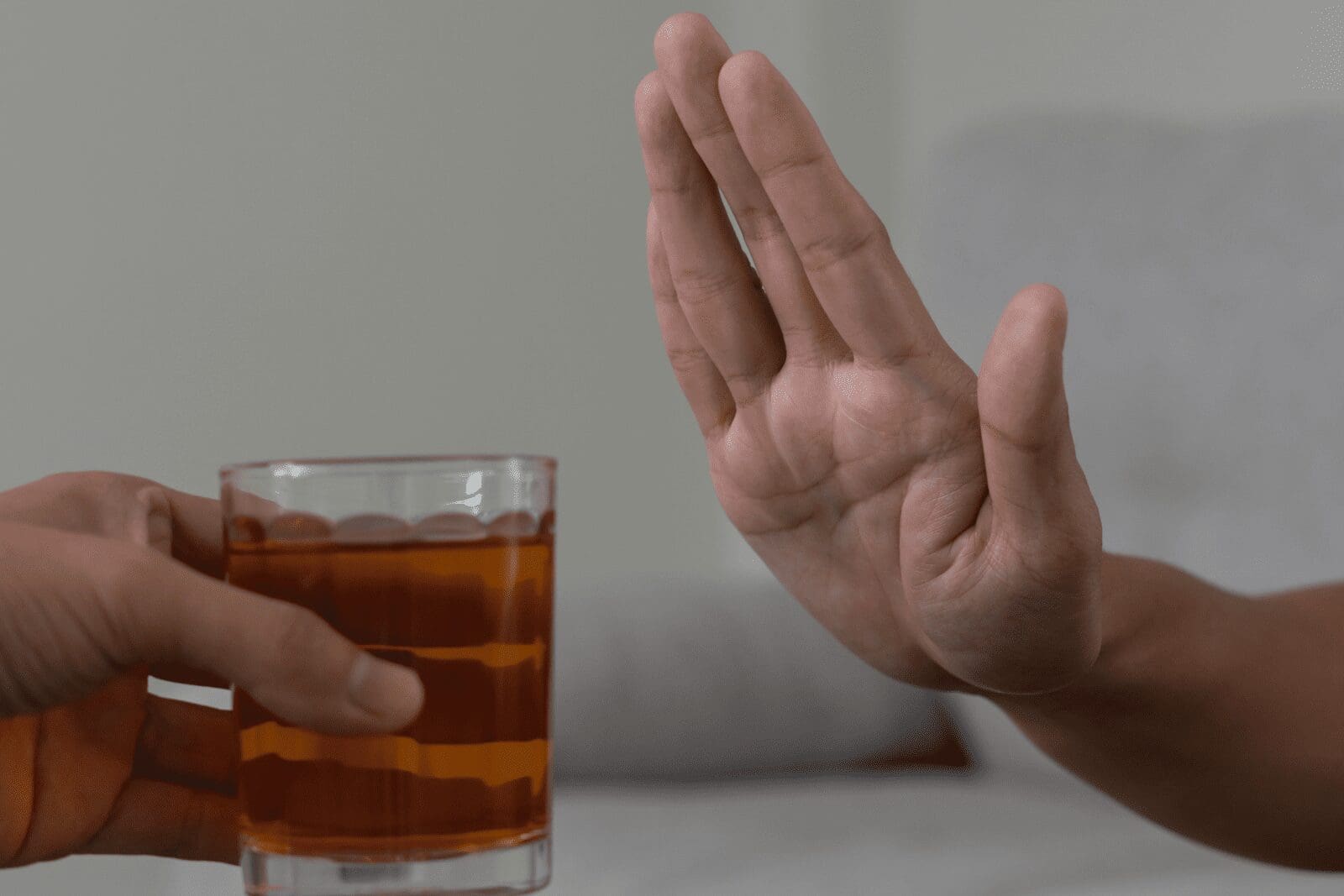Alcohol detoxification, often referred to as alcohol detox, is a critical first step in overcoming alcohol addiction. For individuals in New Jersey, the journey begins by understanding what detox entails and why it is essential for long-term recovery. Detox is the process of allowing the body to rid itself of alcohol while managing the symptoms of withdrawal in a safe and controlled environment.
At Absolute Awakenings, we offer comprehensive detox programs designed to provide the necessary medical support and care. Our primary goal is to ensure that each individual can begin their recovery journey with the best possible foundation. By choosing a professional detox program, you can significantly reduce the risks associated with withdrawal symptoms, which can range from mild to severe and even life-threatening.
Yes, You Can Get Your Life Back. Call Absolute Awakenings Today.
Alcohol detox in New Jersey is not just about stopping alcohol intake; it’s about creating a personalized plan that addresses the physical, emotional, and psychological aspects of addiction. This holistic approach ensures that individuals are not only physically stable but also mentally prepared for the next stages of treatment. Through our dedicated team of professionals and evidence-based practices, we strive to offer a seamless transition from detox to ongoing therapy, helping clients achieve lasting sobriety.
Choosing the Right Detox Facility
When it comes to choosing the right detox facility in New Jersey, several factors should be considered to ensure the best possible outcome for your recovery journey. The first and perhaps most crucial step is to research and identify facilities that are licensed and accredited. Accreditation ensures that the facility meets specific standards of care and is regularly reviewed for quality and safety.
Another essential factor is the availability of medical supervision. Detoxing from alcohol can be a complex and sometimes dangerous process, requiring the expertise of healthcare professionals who can manage withdrawal symptoms and provide emergency care if necessary. Look for facilities that offer 24/7 medical support to ensure that you are in safe hands throughout your detox.
It’s also important to consider the type of programs offered. Comprehensive detox programs typically include not only medical management but also psychological support and counseling. This holistic approach addresses both the physical and emotional aspects of addiction, setting the stage for more effective long-term recovery. Facilities that offer individualized treatment plans can tailor their services to meet your specific needs, increasing the likelihood of a successful detox.
Location can also play a significant role in your choice. Some people prefer to detox close to home, where they can have the support of family and friends, while others may benefit from being in a different environment to minimize distractions and triggers. Lastly, consider the amenities and environment of the facility. A comfortable and supportive setting can greatly enhance your overall detox experience, making the process more manageable.
By carefully evaluating these factors, you can make an informed decision and choose a detox facility in New Jersey that aligns with your needs and goals.
Understanding the Detox Process
Understanding the detox process is crucial for anyone considering alcohol detox in New Jersey. The detoxification phase is the initial step in overcoming alcohol addiction and involves removing alcohol from your system while managing withdrawal symptoms. This process typically unfolds in three stages: evaluation, stabilization, and transition to further treatment.
The first stage, evaluation, involves a thorough medical assessment to determine the extent of your alcohol use and any co-occurring medical or psychological conditions. This may include blood tests, mental health evaluations, and a detailed review of your medical history. The goal is to create a personalized detox plan that addresses all aspects of your health.
During the stabilization phase, you will begin the detox process under the supervision of medical professionals. This stage is critical for managing withdrawal symptoms, which can range from mild discomfort to severe and life-threatening conditions like seizures or delirium tremens (DTs). Medications may be administered to ease symptoms and ensure your safety and comfort. Psychological support is also provided to help you cope with the emotional challenges that may arise during detox.
The final phase is the transition to further treatment. Detox alone is not a cure for alcohol addiction; it is merely the first step. Once stabilized, you will be encouraged to continue your recovery through inpatient or outpatient treatment programs. These programs often include counseling, therapy, and support groups designed to address the underlying issues contributing to your addiction and to equip you with the tools needed for long-term sobriety.
Understanding these stages helps demystify the detox process and prepares you for what to expect, making the journey toward recovery less daunting and more manageable.
Managing Withdrawal Symptoms
Managing withdrawal symptoms is a pivotal aspect of alcohol detox in New Jersey. Withdrawal symptoms can vary significantly in intensity and duration depending on the severity of the addiction, the individual’s health, and other factors. Understanding these symptoms and how to manage them effectively can make the detox process smoother and safer.
Common withdrawal symptoms include anxiety, tremors, sweating, nausea, vomiting, headaches, and insomnia. In more severe cases, individuals may experience hallucinations, seizures, or delirium tremens (DTs), a condition characterized by confusion, rapid heartbeat, and fever. These severe symptoms necessitate medical supervision to ensure safety.
One of the primary methods for managing withdrawal symptoms is through the use of medications. Benzodiazepines are often prescribed to reduce anxiety and prevent seizures, while other medications like antipsychotics or anticonvulsants may be used for specific symptoms. These medications help to stabilize the patient and reduce the risk of complications.
In addition to medications, other strategies can be employed to ease withdrawal symptoms. Hydration and nutrition play a vital role in recovery. Ensuring that the patient receives adequate fluids and a balanced diet can help replenish nutrients and support the body’s healing process. Psychological support through counseling and therapy can also be beneficial, providing emotional comfort and coping strategies during this challenging time.
Creating a calm and supportive environment is equally important. Reducing stress and providing a safe, quiet space can help alleviate some of the discomfort associated with withdrawal. Engaging in light physical activity, such as walking or gentle stretching, can also promote relaxation and improve mood.
Managing withdrawal symptoms effectively requires a comprehensive approach that combines medical intervention, psychological support, and lifestyle adjustments. This holistic strategy not only ensures safety but also sets the foundation for a successful recovery journey.
Support Systems and Resources
Building a strong network of support systems and resources is crucial for anyone undergoing alcohol detox in New Jersey. Detoxification is just the first step in the recovery journey, and having a robust support system can significantly enhance the chances of long-term success.
Family and friends often form the cornerstone of an individual’s support system. Their understanding, encouragement, and presence can provide emotional stability and a sense of belonging, which are essential during the challenging phases of detox and recovery. Open communication and education about addiction can help loved ones offer more effective support.
Peer support groups, such as Alcoholics Anonymous (AA), offer another vital resource. These groups provide a platform for individuals to share their experiences, challenges, and triumphs with others who have faced similar struggles. The sense of community and mutual understanding in these groups can be incredibly uplifting and motivating.
Professional support is equally important. This includes therapists, counselors, and medical professionals who specialize in addiction treatment. Regular counseling sessions can help individuals address the underlying issues that contribute to their addiction, develop coping strategies, and set achievable goals. Medical professionals can monitor progress, manage any ongoing withdrawal symptoms, and adjust treatment plans as needed.
In addition to human support, numerous resources are available to aid in recovery. Books, podcasts, and online forums dedicated to addiction recovery can provide valuable information and inspiration. Educational materials can help individuals understand their condition better and explore various strategies for maintaining sobriety.
Local community resources, such as wellness centers and recreational programs, can also be beneficial. Engaging in healthy activities like exercise, meditation, and hobbies can provide a constructive outlet for stress and help rebuild a fulfilling, sober lifestyle.
Ultimately, a well-rounded support system and access to diverse resources can make a significant difference in the recovery process. By leveraging these tools, individuals can find the strength and resilience needed to overcome addiction and build a healthier, more fulfilling life.
Post-Detox Care and Recovery
Completing an alcohol detox in New Jersey is a commendable achievement, but it’s crucial to understand that detox is just the beginning of the recovery journey. Post-detox care and recovery play a vital role in ensuring long-term sobriety and preventing relapse.
First and foremost, continuing therapy and counseling is essential. Post-detox, individuals often face emotional and psychological challenges that need to be addressed to maintain sobriety. Regular sessions with a therapist or counselor can help in identifying triggers, developing coping mechanisms, and setting realistic goals for the future.
Medication-assisted treatment (MAT) may also be beneficial for some individuals. MAT involves the use of FDA-approved medications to help manage cravings and withdrawal symptoms, making it easier to focus on recovery. These medications are often used in conjunction with behavioral therapies to provide a comprehensive treatment approach.
Engaging in a structured aftercare program can offer additional support. Aftercare programs typically include a combination of regular check-ins with healthcare providers, support group meetings, and ongoing education about addiction and recovery. These programs are designed to provide continuous support and monitor progress, ensuring that individuals stay on track with their recovery goals.
Healthy lifestyle changes are also a key component of post-detox care. This includes adopting a balanced diet, engaging in regular physical activity, and practicing mindfulness techniques such as meditation and yoga. These activities not only promote physical well-being but also enhance mental and emotional health, making it easier to maintain sobriety.
Building a strong support network remains crucial. Staying connected with family, friends, and peer support groups can provide the emotional backing needed during challenging times. These connections offer encouragement, accountability, and a sense of community that can be incredibly motivating.
Lastly, setting long-term goals and creating a plan for achieving them can provide direction and purpose. Whether it’s pursuing a new career, continuing education, or developing new hobbies, having goals to work towards can keep individuals focused and engaged in their recovery journey.
Yes, You Can Get Your Life Back. Call Absolute Awakenings Today. Our comprehensive approach to post-detox care ensures that you receive the ongoing support needed to build a healthier, fulfilling life free from addiction.


















